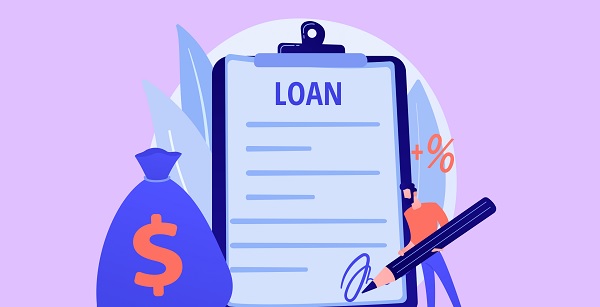Personal loans are growing in popularity as borrowers are more readily opting for these than other types of loans. But is a personal loan the right choice for you? To understand whether you must take a personal loan or another form of loan for your purpose, there are a few very important things you need to know about them. For instance, how is a personal loan different? What are its advantages over other specific types of loans? How are they useful?, and more.
Purpose Of A Personal Loan
The first thing you should know before taking out a personal loan is what its purpose is. In general, a personal loan can be utilized in any manner as you wish. They are a type of fixed-term loan, which are highly versatile, and as such, suitable for various requirements.
Whether you wish to make a big purchase like buying a car, or want to settle existing debts or pay off a high interest sum, or perhaps you are in urgent need of a lump sum cash amount to pay for medical bills or education expenditures or any other types of bills, a personal loan can be used for the same.
However, for some types of expenses, such as buying homes and cars, or getting an education, there are other types of loans available as well, so why should you opt for a personal loan? This is the next major thing you should know.
Why Choose Personal Loan Over Others
Despite specific loan options being available for certain types of expenses, some people choose a personal loan over them.
Also read: When Are Personal Loans a Good Idea?
Why? Well, there are several reasons behind it including the following:
- A personal loan is generally unsecured. This means that there is no need to offer something as a collateral against the loan. People who do not have any assets or do not wish to put their assets up as collateral choose this.
- Another reason why people opt for a personal loan is that they are highly versatile. Whether it is something relatively small like purchasing an air conditioner or another appliance, or something big such as paying for education or medical expenses.
- Furthermore, in some cases, the repayment term for a personal loan is longer as compared to other types of loans. This means smaller monthly repayments, making it easier for borrowers to complete payment without defaulting.
Do You Qualify For a Personal Loan?
Before taking out a personal loan, it is vital to know whether or not you qualify for it. In order to be eligible for a personal loan, a basic requirement is having a good credit score. So, before you go out to get your loan, find out what it is.
The credit score can determine whether or not you are eligible for a personal loan. But more than that, it helps in deciding what kind of a rate of interest is offered to you. Moreover, it can also be used to decide the loan term which the financial institution offers. These factors are vital to find out before securing the loan.
Apart from the credit score, another defining factor can be whether or not you are offering collateral. If the option to offer a collateral is there, and the borrower chooses to provide assets as collateral, they become more suitable in the eyes of the financial institution for getting the loan.
Some other eligibility criteria can include employment status, proof of income source, existing financial relation or history with the particular bank, etc., particularly seen in light of the loan amount requested.
How is the Loan Disbursed
Certain borrowers can require funds immediately, and some financial institutions can in fact disburse the loan amount within 24 hours. However, it is essential to find out how the loan amount will be given to you.
Most banks and credit unions disburse the loan amount in the borrower’s account. If you however choose a private lender or online lender, you may be able to get the funds in cash. Either way, the funds are available to the borrower in liquid form, allowing them the capability to use them as they want.
How Do Repayments Work
Shortly after the loan is disbursed, the repayment terms kick in. This means the borrower needs to start payments as soon as the repayment schedule starts, which can be within a month of loan disbursement. The onus is then on the borrower to stick to the payment schedule and not miss any payments in order to ensure that they do not default on the loan.
Some more things you can consider include having a co-signer to the loan. This means that in case you are unable to pay the loan yourself, the co-signer will be liable to pay on your behalf. This can be beneficial for those who have a poor credit score and history, and do not have any collateral to offer.
Also read: Personal Loan: Definition, Types, and How to Get One
However, when getting a co-signer, it is essential that they are also aware of the loan terms and their liability, so that they are not blindsided in case of your default.
It is also essential to inquire about the possibility of early repayments. Some financial institutions allow for early repayments, whereas others can sometimes impose penalties for the same. Before taking out the personal loan, it is essential to understand what the particular policy of your chosen bank/ credit union/ private lender is.
The possibility of early repayments can also depend upon the terms of the contract, in which case, you may want an explicit clause in this regard mentioned within the contract before finalizing the loan terms and signing on it.
Acquiring a personal loan requires a lot of vigilance on the part of the borrower as well as the lender. Before entering into a legally binding contract, it is always advisable to clarify each and every minute detail, and perhaps even have another set of eyes look at it. This helps ensure that you are not signing up for something that is impossible to accomplish and spells trouble for you later.



